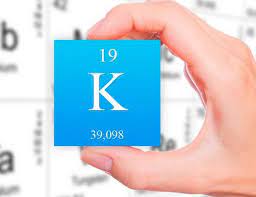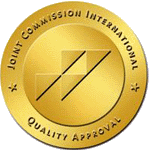Potassium (K)

Potassium is a macroelement necessary for the functioning of all cells in the body, participates in the process of acid-base balance in the blood and regulates water-salt metabolism in the body, participates in the processes of transmitting impulses from nerves to muscles and plays an important role in the work of the heart muscle, regulates the concentration of gastric juice, reduces the level of carbon dioxide in the blood.
The health of the nervous system and heart, muscle strength of the body depends on a sufficient amount of potassium. The most important function of potassium is the potassium-sodium pump. Potassium and sodium are closely related, and if the ratio of the two elements is incorrect, the risk of kidney stones may increase. Potassium improves calcium absorption and affects bone mineral density. Excess potassium can lead to calcium deficiency. For better metabolism of potassium in cells, magnesium is necessary and the correct ratio of magnesium, calcium and potassium can reduce the risk of stroke.
The total potassium content in the human body is approximately 250g, the daily requirement is 1.5-2 g. Only the attending physician can determine the exact dosage.
The need for potassium increases:
- with increased salt intake
- with mental and physical stress
- in case of injuries, diarrhea, vomiting - is intensively excreted from the body
- when using sleeping pills and diuretics
The main manifestations of potassium deficiency are slow growth of the body and impaired sexual function. Lack of potassium causes muscle cramps and disruption of the heart.
Causes of potassium deficiency:
- taking hormonal medications - they reduce potassium reserves
- overdose of diuretics
- prolonged vomiting, diarrhea
- large doses of caffeine or alcohol
- hypo- and hyperglycemic conditions
- emotional or physical stress
- increased excretion from the body through sweat, during sports activities
Signs of potassium deficiency:
- memory impairment, depression
- it is difficult for a person to relax, sleep disturbance
- excitability or drowsiness
- decreased physical endurance - loss of strength, muscle weakness
- sensitivity to cold, often cold hands and feet, colds
- bloating and spasms of the gastrointestinal tract, lack of appetite, sometimes nausea and vomiting
- sensation of numbness and tingling in different parts of the body
- periodic skin rashes, acne, skin itching
- night muscle cramps, especially in the legs
An excess of potassium from foods usually does not occur in healthy people. But, with an increased intake of potassium from dietary supplements, it can lead to hyperkalemia. This is toxic, especially for people with impaired elimination of substances from the body; life-threatening arrhythmia may develop.
Potassium salts are found in most plants and prevent the growth of bacteria. Natural, best sources of potassium are citrus fruits, bananas, all green leafy vegetables, tomatoes, mint leaves, potatoes, pumpkin seeds, flax seeds, sunflower seeds, and almonds. More often, potassium comes mainly from cabbage, potatoes, legumes (beans, chickpeas), herbs, carrots, dried fruits (raisins, dried apricots and prunes).
Important! Potassium is not produced in the human body.
By including foods rich in potassium in the menu, we take care of our health!
If for any reason potassium is not absorbed from foods, then drug therapy can be prescribed by a doctor.




